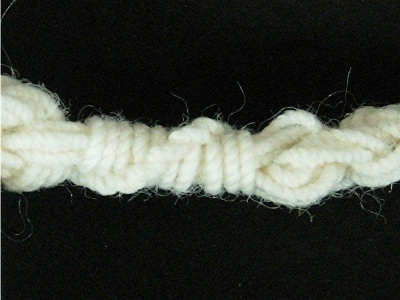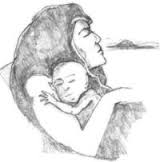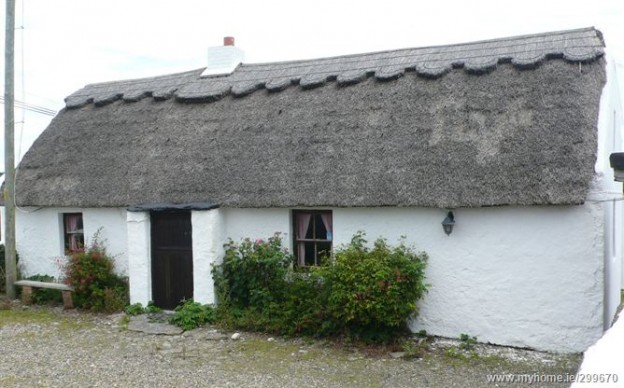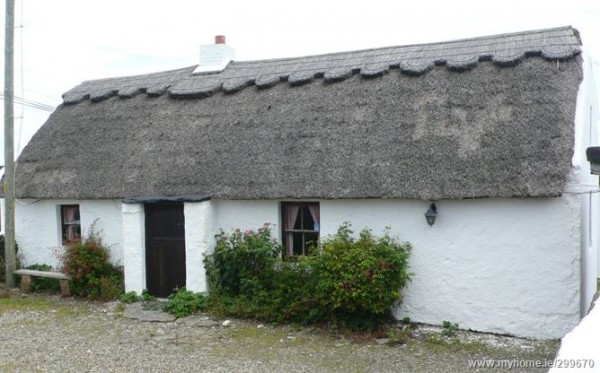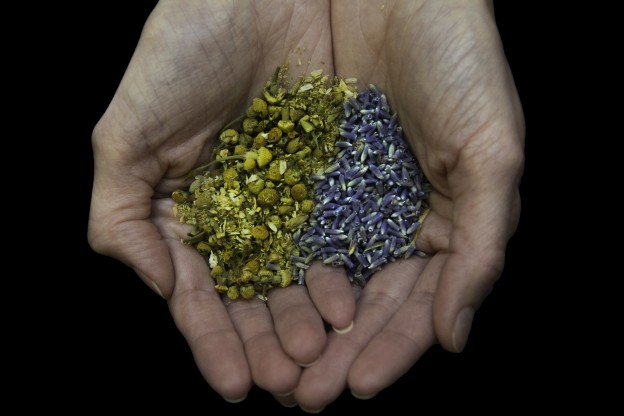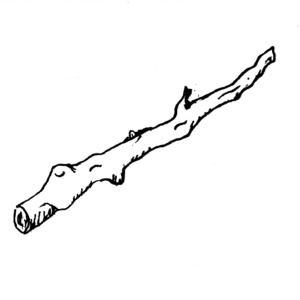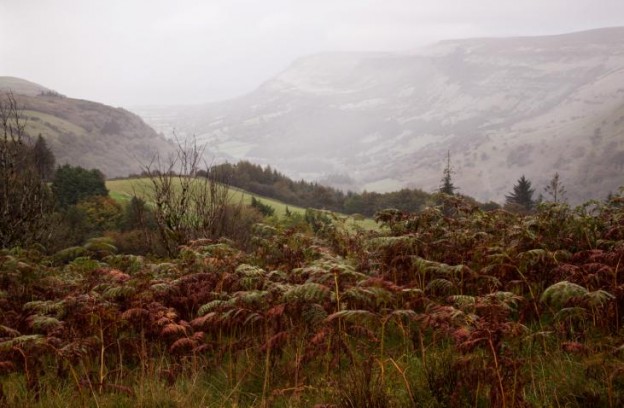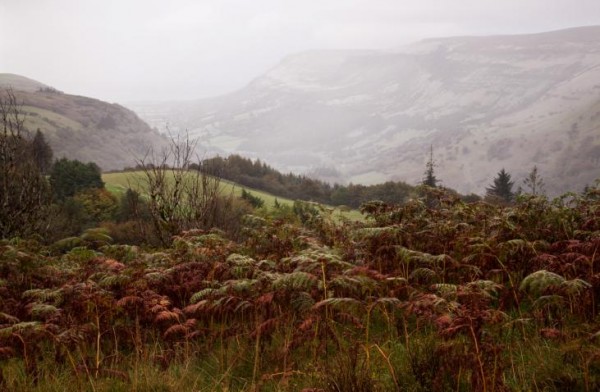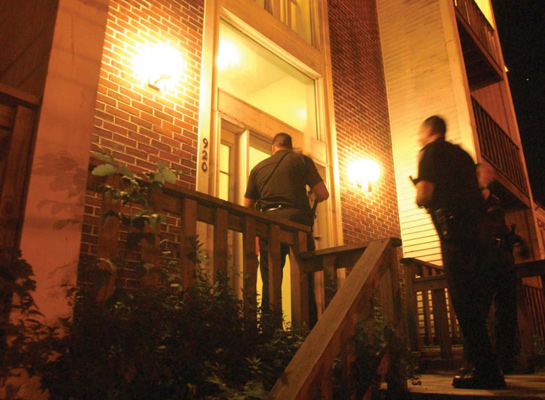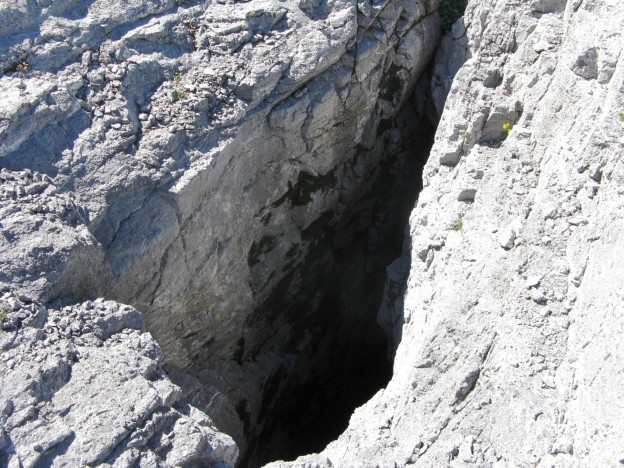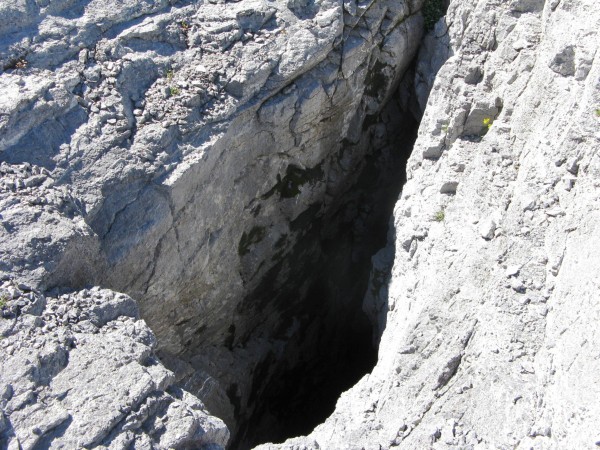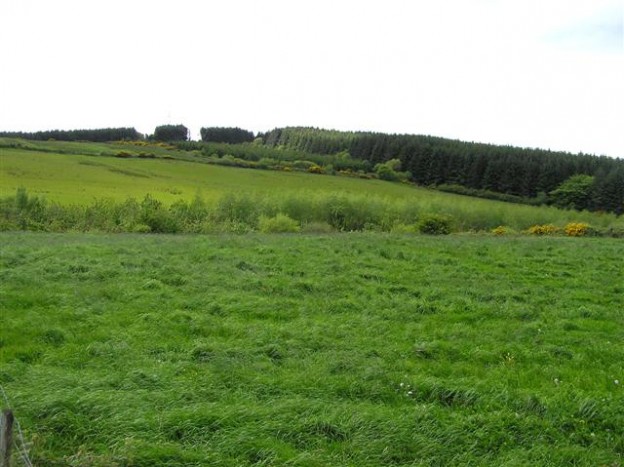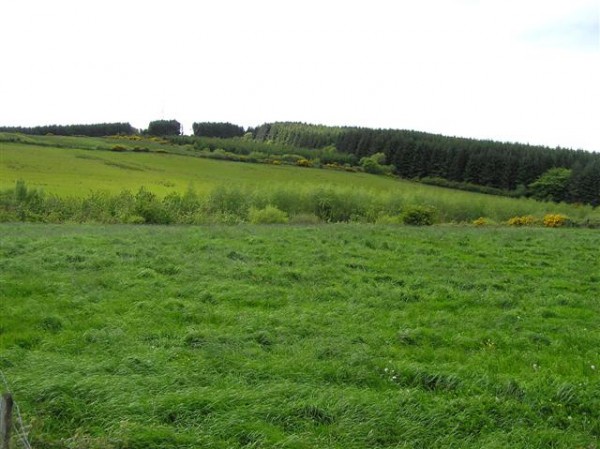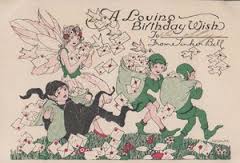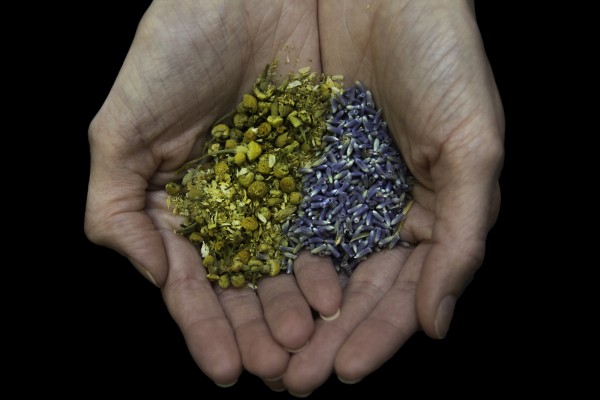
Kate M’Alister (Katie Billy), living at Agolagh, Cruach-na-muck, related the following, and said she was so frightened by the fairy apparition, thinking that the good people would carry her off and the two children, ‘that it anchored in her mind, she thought it so terrible.’ When living with her aunt, Nellie Patten, at Agolagh, forty years ago (she being then aged about twenty-five), when going one day on an errand to Knocknacarry, about eleven o’clock in the day, she met a fairy man on the road, dressed in bottle-green velvet coat, grey stockings, shoes tied with ribbon, and with a low Quaker-like hat; she wondered very much who it could be, as she had never seen him before, or met anyone like him. When she returned home she found this little man, with flaps in his cheeks, (as she expressed it) sitting on the side of the bed talking to her aunt: his feet did not touch the floor. ‘Don’t you know,’ he said, ‘that Captain Donnell O’Hara built a big house here, and called it Castle Donne. I was a little fellow at the time, 150 years ago, herding here with a farmer, named M’Creeve, i. e., a tree in Irish. The field above what is now the police barrack, is called Garragh-na Creeve, ‘The Garden with the Tree.’ ‘Where do you live?’ said my aunt, ‘that you know my name, and all about the neighbourhood?’ ‘I just stop on the other side of the river over against you,’ he replied, and when he left shortly after we followed, to see what road he would take, but he vanished. The place where he said he lived was a brae-side covered with blackthorns, and situated on the other side of the river Dun. When the fairy rose up to leave, he put his hand into his pocket, and drew out two herbs, which the herbalists in the country did not know were of any value as cures of diseases, viz.: ‘Glasswort,’ or ‘Kali,’ and ‘Dove’s-foot,’ or ‘Crane’s-bill;’ he held them in his hand, and said ‘they were worth their weight in gold:’ this he repeated twice, placing his hand in his pocket and producing the herbs each time. Brenan 60
